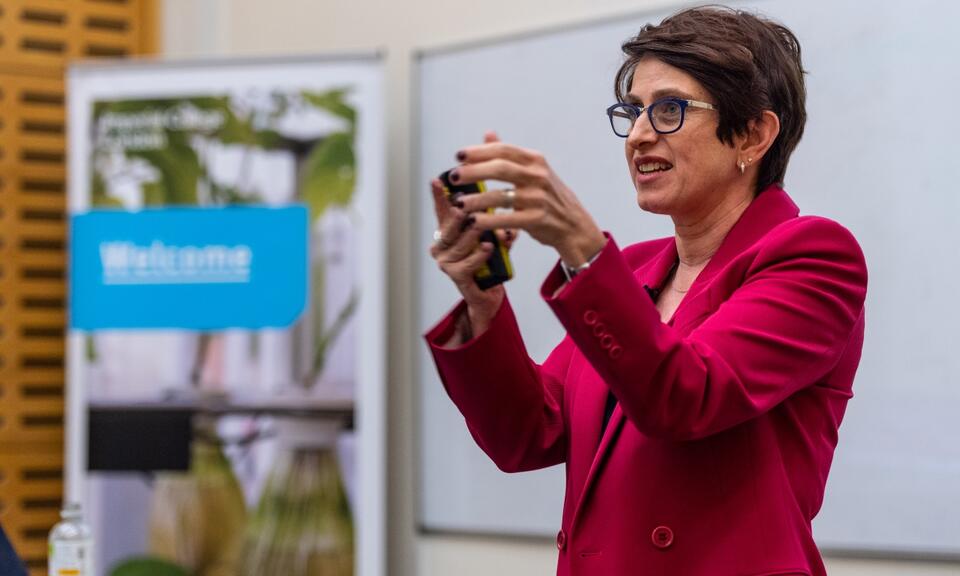
Business leaders are often under pressure to make critical decisions with limited information. But how can they do this responsibly?
The coronavirus (COVID-19) pandemic has forced leaders of all scopes and scales to make life and death decisions. It’s a situation many would never have expected to find themselves in. How many CEOs had previously entertained the idea of moving all their operations off-site? Has the conductor of a small community brass band ever considered cancelling rehearsals to protect the health of their musicians?
It’s a historic moment that has made responsible leaders easy to spot. They are wearing face masks, maintaining social distance and making decisions that put the health and livelihoods of their employees ahead of their own personal interests. However, outside these unprecedented times, the qualities that underpin responsible leaders can be harder to spot.
Thinking about what makes a leader responsible begs the question: "responsible for what?" A CEO is, obviously, responsible for managing his or her company, but responsible leaders see their responsibility as encompassing a much wider set of agents, activities and outcomes.
The bigger picture
I see responsibility manifesting in three main ways. First, responsible leaders are focused on others rather than themselves. They think about how their decisions affect a wide range of stakeholders, including those that are touched directly by the actions of their organisations, as well as how their organisation affects wider society. A reduced focus on the self and a heightened understanding of others drives these leaders to make decisions that support the greater good. The economy, the environment and political systems are just a few of the factors responsible leaders will take into consideration when they make decisions. A heightened focus on others coupled with a reduced focus on themselves is a hallmark of humility, a characteristic that responsible leaders share.
Second, responsible leaders consider a long-term perspective in their thinking and decision making. We hear a lot about short term-ism causing decisions that are in the best interest of immediate financial gain to the detriment of long-term value. There is a general cognitive bias towards favouring the short over the long term. Even worse, this bias is exacerbated in times of threat – so we should expect to see a reduction in this aspect of responsible leadership during the COVID-19 pandemic.
Maintaining an altruistic perspective is easier said than done
Third, a responsible leader thinks about the moral content of their decisions. Every day the average person makes countless decisions, from what they wear to where they get lunch. Most might not seem to have much moral content, but almost everything we do has some degree of social impact. Choosing to purchase ethically produced clothing over sweatshop-manufactured fast fashion, or a sandwich made from free-range eggs, are moral decisions, however small they may be.
Responsible leaders recognise their decisions can be highly influential and consider their social impact. For example, a CEO moving all of their employees to remote work can cause a dramatic change in dozens of people's wellbeing, both directly and indirectly.
Leading by example
A perfect example of a responsible leader doesn’t exist, but an interesting individual is Pope Francis. As head of the Catholic Church, one of the world’s largest and most powerful organisations, he could easily live a sequestered, luxurious life. However, unlike his predecessors who resided in the palatial apartment, Pope Francis chooses to live in a small communal dormitory. Instead of an armoured car, his vehicle of choice is a modest Fiat 500. His humility is also reflected in how he chooses to conduct ceremonies. Instead of his fellow priests, he washes the feet of inmates and immigrants as part of the traditional Holy Thursday ceremony.
Pope Francis would presumably do a reasonable job of leading the Catholic Church without breaking these traditions, but these choices illustrate that he is aware of his power and privilege, as well as the responsibility that accompanies it. He is very influential, and by choosing to use that influence to highlight selfless acts he demonstrates a responsibility to the greater good.
The best leaders continue to make decisions that make those around them feel seen, safe and valued
Maintaining an altruistic perspective is easier said than done. Several frameworks for human motivation describe self-focused needs as more fundamental than externally-focused ones. Actually, Abraham Maslow, who was known for proposing a five-level hierarchy of needs that put self-actualisation at the top, proposed a sixth level of motivation shortly before he died. This ultimate level transcends the self, and involves being motivated by truth, fairness and justice. But striving for these transcendent values often waits until baser and more self-focused needs are already met.
Unfortunately, people tend to focus on their base needs when facing a threat to their sense of security, self-esteem or confidence. A 2009 study by Nate Fast found that powerful people tend to become aggressive and lash out when they feel their competence is being threatened.
Responsible leaders recognise this. Despite these external forces, the best leaders continue to make decisions that make those around them feel seen, safe and valued. When freed from those external pressures, people are able to think more creatively and perform at higher levels.
These kinds of actions are only going to become more important. From supply chains to work-life balance, the pandemic is changing how work is done. To make it through this pandemic, we need leaders who take decisive action while focusing on others, the long term, and higher order values.



